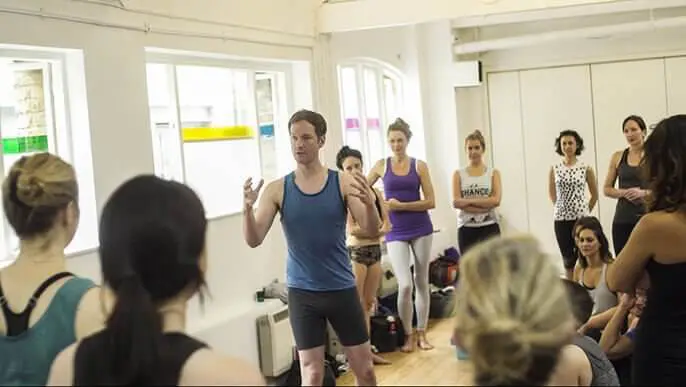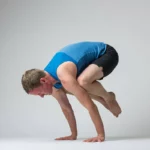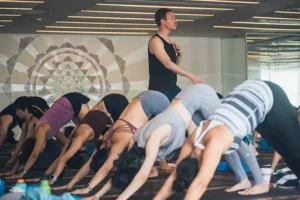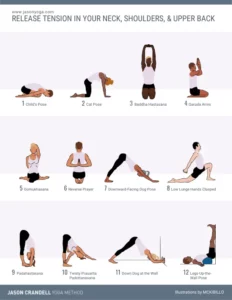On the last day of my 200-hour teacher training last August, I woke up early to reflect and write about the experience. For an entire month, I’d worked with an intelligent, skillful, engaged group of 40 students at triyoga in central London. While sitting at Fernandez and Wells—my favorite provider of superb dark roasts in Soho—I jotted down some of the themes that came up during the month. I think they’re helpful for anyone considering a teacher training.
YOUR TEACHER WILL WITNESS YOU AND YOU WILL WITNESS YOUR TEACHER
Part of a yoga teacher’s job is to see you clearly. Your teacher doesn’t just see your body and how you move—they witness your personality, your comfort level in groups, your moods, and more. This isn’t to say that teachers are omniscient or perfect diagnosticians, but like photographers know light and chefs know flavor profiles, good yoga teachers know the human condition. And, guess what? Students also witness their teachers. Students are smart and intuitive. They’re capable of seeing the whole range of your personality pretty quickly. Since teachers and students will “see” each other during trainings—especially intensive, month-long trainings—it’s essential to embrace transparency, communication and, honesty, since your essence will already be visible to you and everyone else.
YOU WILL FEEL RAW—THAT’S HOW YOGA WORKS
I called the yoga room at triyoga “the incubator.” The month-long training was like an experiment in yoga, the human condition, and group dynamics. It was beautiful and powerful. Sure, everyone had their moments—including yours truly—where they wanted to escape, binge-watch anything on television, and inhale a box of chocolate. After all, transformation is not always easy, pretty, or convenient. Intensive trainings are intense. They make people feel raw, vulnerable, and exposed because that’s exactly what the process of transformation requires.
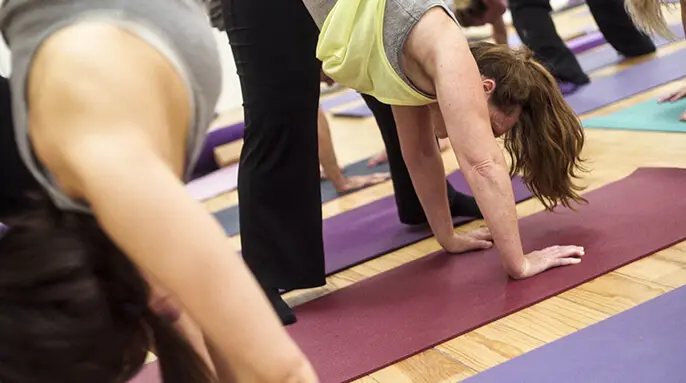
YOGA IS A SUBJECT MATTER AND YOU’RE AT THE CENTER OF IT
I love writing curriculum for teacher trainings. I’m content when I’m structuring content so that all the elements of the training are clearly defined and cohesively presented. Full disclosure: I’m a Virgo. But, the subject matter of yoga is much more than the teaching methodology, practice technique, philosophical contextualization, and teaching methodology that the syllabus suggests. The real subject is you. You are studying yourself when you’re studying yoga—even more so when you’re in training to teach. Yoga is clearly defined, but the experience of yoga is deeply personal and subjective.
TEACHING YOGA IS A PRACTICE
There’s always a moment of gravity in my teacher training programs when students realize that teaching yoga is going to be difficult. Executing all the layers of class—from sequencing and pacing to verbal cueing and adjusting—takes practice. In fact, teaching yoga is perpetual practice. We don’t just need beginner’s mind when we’re doing physical and spiritual practices, we need to cultivate beginner’s mind when we’re teaching these practices. This means that students should be given teaching exercises from the very beginning of the program. Even more, trainees need to be reminded that there is no reason to fear the countless mistakes that they will inevitably create as they practice teaching yoga.
STUDENTS NEED TO BE ASKED THE RIGHT QUESTIONS
Trainings are filled with information. Students are taught the elements of class construction, practice technique, teaching methodology, and more. Trainings also need to inspire students’ self-inquiry by asking them the right reflection questions. Trainees connect to the deepest reasons they’re in the training by answering questions like, “if you could teach your students one thing through yoga about, what would it be?” Questions like, “What are the strengths and challenges of your personality as it relates to teaching yoga?” are also helpful sources of contemplation and trigger important conversations. Good trainings don’t just tell the student what to teach, they inspire the student to find what they are called to teach.
